Bass
Poppers Are a Productive Surface Lure Prespawn Through Late Fall
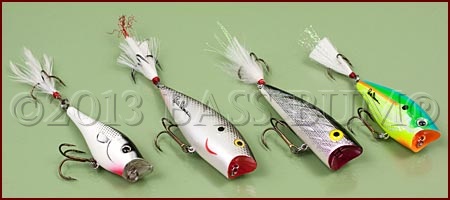
Though bass poppers fell from popularity for a while a few years back, top water poppers have come back strong. Their common design feature, a cupped face, creates the spitting, blurping, splashing surface commotion that draws bass to strike from as far away as ten feet or more.
While the cup is at the core of why these top water poppers catch bass, equally important is good placement combined with action imparted by the angler when fishing poppers.

Bass Popper Design Features
The most venerable of the top water poppers is the Rebel Pop-R, an example shown below. Today there are numerous versions that for the most part mimic the Pop-R’s basic design. Most weigh in at around ¼ ounce and are 2 ½ to 3 ½ inches or so long. The bodies are cone shaped, tapered from a cupped face of various depths and widths and have some style of dressed treble hook.
The Venerable Rebel Pop-R
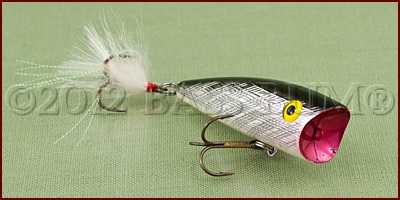
The primary feature of top water poppers is the cupped (concave) face like the two shown below. The cup causes the lure to catch, then spit water and it is this feature to which many anglers attribute the success of top water poppers.

The Cup Is the Key
|
Berkley Frenzy Popper 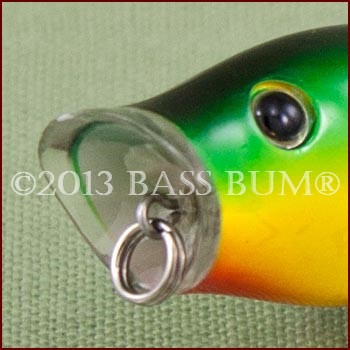 |
Rebel Pop-R 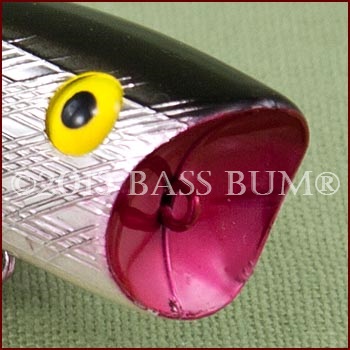 |
However, a popper lure also creates noise. It captures air and water in its cup and forces it away as it dives slightly below the water’s surface on retrieve. The glurp, blurp, slurp sounds that result attract the attention of bass, even non-active bass resting in cover or those as deep as ten to twelve feet.
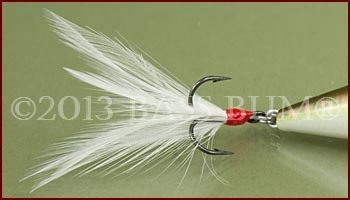
A second feature found on most bass poppers, is a rear treble hook dressed out with tail feathers. The treble hook and its feathers hang below the water when the lure is at rest.
The attraction of these feathers to bass lie in their movement when the popper lure is at rest. The subtle movement of the feathers or other dressings caused by the movement of water, from wind or waves, gives the impression of life. Bass take note.
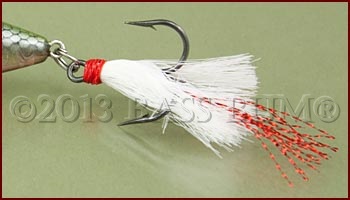
The attraction with these feathers lie in their movement when the popper lure is at rest. The subtle movement of the feathers or other dressings caused by the movement of water, from wind or waves, gives the impression of life. Bass take note.
When Fishing Bass Poppers Learn Patience
It’s important to realize that bass, especially those lurking around cover, are more likely than not to be startled by the sudden crash of a surface lure in its space. They immediately move away.
If the lure is allowed to just sit for a bit, the feathers or dressing on the rear treble hook are allowed to do their thing imitating life as the bass returns, usually within 45 seconds to a minute, to inspect the intruder. After having given the bass enough time to return, give the lure a slight twitch. Boom, they will often strike.
Return to Bass Fishing Lures from Bass Poppers
